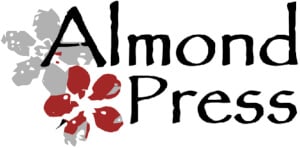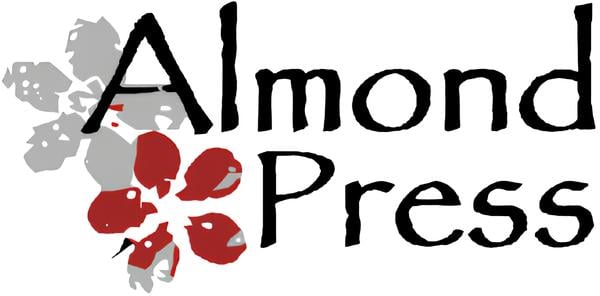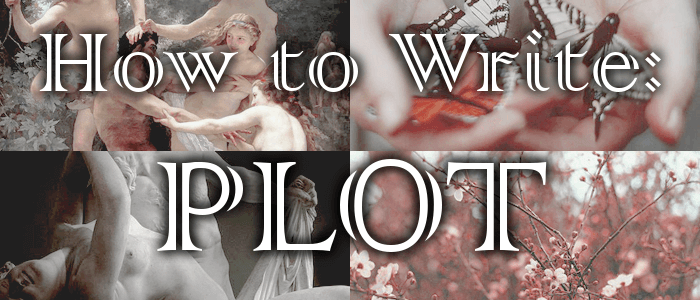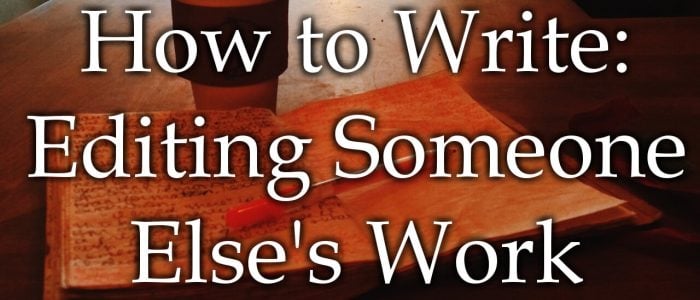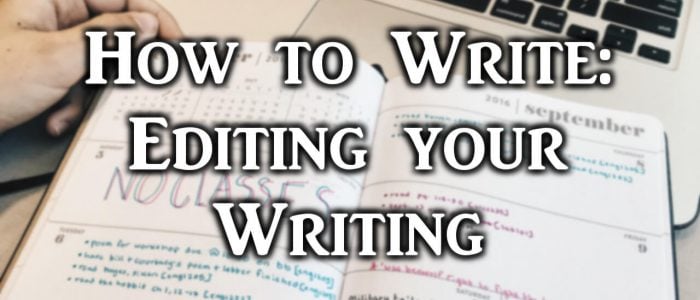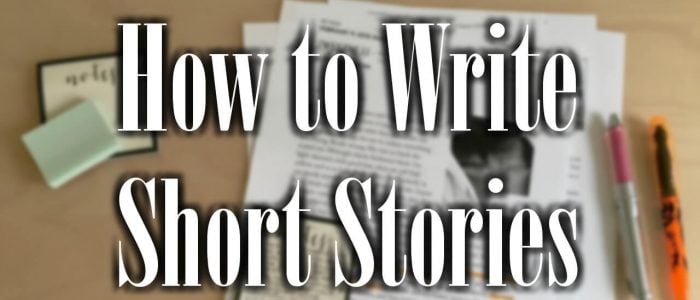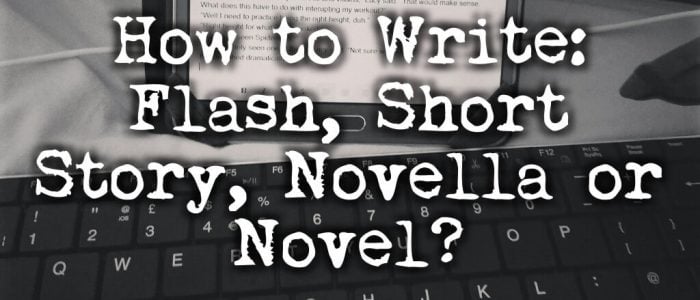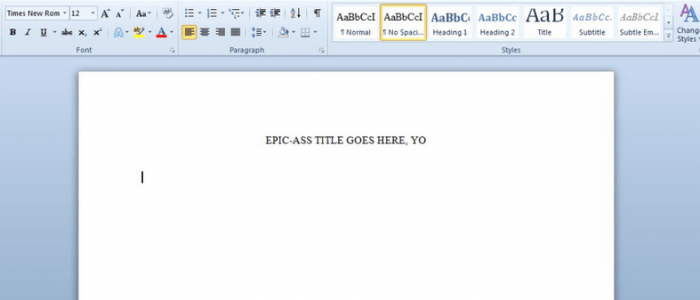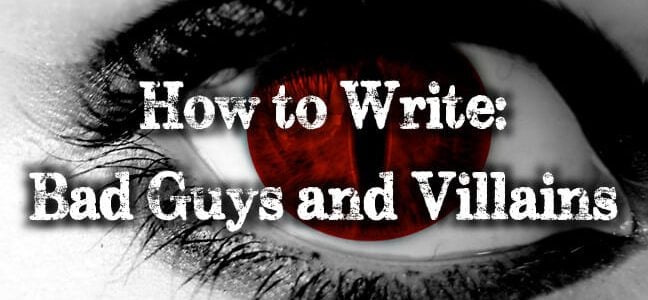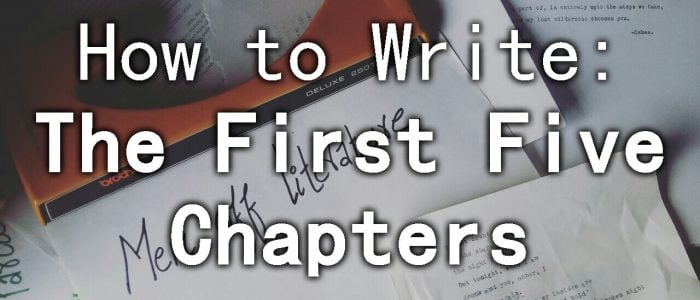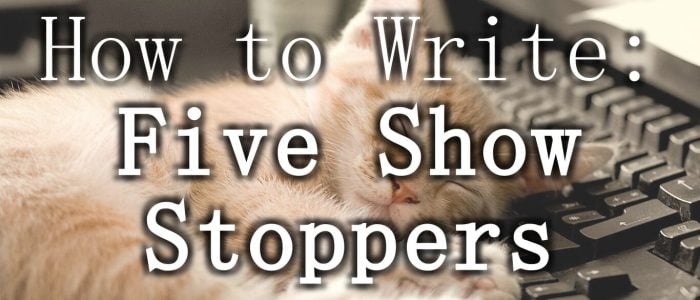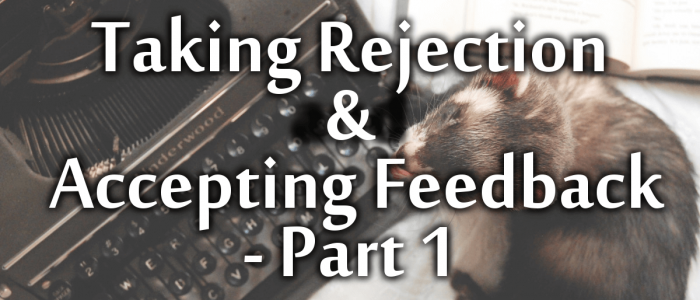Ever read a book where you. Just. Don’t. Care? There’s danger…and ooh, the hero saved the day. Big surprise! You guessed that from the start. So here’s some ideas to make your plot a cliff-hanger and drama-filled rollercoaster… 1. Two bad choices Give your protagonist a choice…but make both of the options bad. Save the boyfriend, or the world? Rob the bank to get the ransom money, or let the hostages die? Walk away and live with regret, or stay and die? Even small choices can matter, as long as it adds an extra notch to the problems. 2. A real possibility of failure We know James Bond will always save the day and get the girl…but what if he doesn’t? What if there’s a real chance of failure? We’ve got a sinking feeling; it could actually happen, the baddies could win, the author might be going to surprise us… And then: phew! He did pull it off! The world is saved! But that little moment of doubt, that little inkling of worry…it just ratchets up the fear factor. 3. Build the tension The morning starts with one small task; the dog’s not well, take it to the vet. And then the car won’t start. And then a bullet goes through the windscreen. And then the apartment’s surrounded by goons. And then the President’s called because there’s a nuclear crisis – and the dog just threw up on your hero’s shoes. Add a bigger problem, and a bigger problem…and that first thing has still got to be done. Just keep ratcheting up the trouble. 4. A solution causes more issues Sure, your hero has just done that favour for the Head Honcho of Something – but now they’re in deep shit with Head Honcho’s enemy. Well, that didn’t go as… read more →
If you write (or if you enjoy reading!), you might be asked at some point to look over someone else’s work. You might be asked what you think of it, and – if it’s unpublished – to give some feedback. This is usually known as alpha or beta reading, or critique. So if you’ve agreed to read someone else’s work – whether a short story, a section, a chapter or a full novel – what should you be thinking about? There are three main parts; expectations, critique, and feedback. Check the author’s expectations First thing – before you even look at the manuscript – is to check what the author actually wants. Checking at this stage can save a lot of work and heartache later on! What do they want from you? Writers might not necessarily tell you directly, so ask a few questions; there’s no point wasting time and energy on something that won’t be useful to the writer. What is their major concern with the piece? Do they want every flaw pointed out, or just major plot issues highlighted? Or do they consider the manuscript finished, and want you to do a final read before sending it to a publisher? What’s their time frame? Do they need it back in a week, several months, a year? Do they have an aim in mind – for example, an open submission period? Have they got other work to be getting on with, or are they likely to get impatient and bug you about the work even if they’ve said several months is ok? And, most importantly, can you do what they’re asking (ie. read a novel) in that timeframe? Are you sure you want to take this on? It’s not a nice point to have to put in, but every editor has come… read more →
So, you’ve finished a first draft of something. Yay! But before you send it to anyone else, you need to re-read it. Editing is majorly, majorly important. Unless you’re a comprehensive planner and sketched out everything before you wrote it, you’ll have some organic writing; you’ll have points where the characters have gone off on their own, or that piece of plot didn’t work, or you’re not entirely sure what happened to that scene. You’ll have writing you did at 2am and 11pm and high on caffeine and snatching a quick moment between other tasks. You need to at least re-read your own work to check that it makes sense, that it is what you wanted it to be, and that it works as a complete piece. The benefit of self-editing is also that it teaches you how to improve your own writing. If you look at your own work with a critical eye, you start to spot the flaws – and then you can change them! Editing isn’t meant to be a process of self-loathing and criticism; it’s meant to be a process of critique and improvement. It’s meant to make the writing better. Don’t edit as you write. Most writers tend to find it distracts from writing new stuff, and it can also put you off if you’re overly critical about what you’ve already done. Get some distance. Let the writing settle; two weeks is a pretty good amount. If you read it too soon, you’ll ‘know’ everything you wrote – you need to be a new reader, yet still remember what you were intending when you wrote the piece. It’s a hard balance! Edit first. You should always be the first reader – don’t send it to your alpha unless you’ve at least looked it over once.… read more →
Short stories are regarded as one of the hardest things to write well, and this has some truth! While writing 80,000 words takes more time and requires more continual effort, short stories are effectively packing almost as much information into 10% of the words. So, here’s some pointers in how to write effective short stories. It’s got to be short I know, this is kinda a ‘well, duh’ thing. But you’d be surprised how easy it is to approach short stories as if you’re writing a longer work, and then suddenly realise you’ve hit 8000 words and you’re only halfway through the story… Short stories are short. You don’t have the luxury of waffle, set-up or info-dump. That’s not saying you can’t put background information in, or explain things; but there’s a definite line between not-enough information, just-enough, and waaaay-too-much. You have to let the story speak. It doesn’t have to be a complete story… You don’t have to make the story self-contained. It can be part of a larger story or world, or part of a series; it could end on a cliffhanger or a journey. You could tell part of a story from something else; how did X character get that scar? Where did they meet their sidekick? What exactly happened in That Incident? You can write a section of something else, or a point in a longer story. However…please don’t use a chapter of a Work In Progress as a short story. I don’t think I’ve ever seen it done well; they usually lose too much at both ends, and lack the background and tightness needed for a good short story (see next point). …but it’s better if it is Short stories do work better if they have a beginning, middle and end (which is where chapters… read more →
Novels. Novelettes. Flash fiction. Novellas. Micro fiction. Short stories. What’s the difference? Well, primarily it’s length. However…as you’re probably already aware (and tearing your hair out over), every publisher and editor has their own guidelines on lengths. Before you write for a submissions call or submit to a publisher, check to see what category you fall into, and what length that particular publisher is looking for. Here’s some rough guidelines for the lengths of each category. Micro fiction 500 words or less. There are specific categories within this, including six-word stories and 100-word stories, and a host of other names – you might have come across ‘sudden fiction’, ‘short short story’ and ‘immediate fiction’. Flash fiction 500 – 1000 words, but ‘flash’ often includes micro fiction too, so it’s usually anything below 1000 words. If in doubt, check the submission guidelines or with the publisher. Short stories Usually between 2,000 and 10,000 words. Most publishers prefer 3,000 – 8,000 words, so aiming for the 4-5k mark is pretty safe. Novelette 8000 – 20,000 words, ish. Essentially, novelettes fall into the gap between short stories and novellas. They’re a pretty new category, and you’ll likely have a hard time publishing these if you don’t already have a market. Novella 30,000 to 50,000 words, with the usual aim-for length being 40,000 words. Novellas used to be a hard sell but they’ve grown in popularity over the last five years. Novel 50,000 to 150,000 words. You can aim higher, but you’re likely to end up with a book more suited to beating someone over the head with than actually reading. If you’re hitting the 200k mark or above, consider splitting the book into two, or writing a series. Ideally, you want to aim for 80 – 100k words for a standard novel, which… read more →
There’s a lot of things that can stop you writing. Sometimes it’s real life, which can’t usually be helped; if the dog wants your laptop as a toy and your screen’s now decorated with bite marks, that does put a crimp in your ability to type. But sometimes the show-stoppers are either in your head, or in your writing. Here’s five more things that might be stopping your story in its tracks, and some suggestions to overcome them. I’ve got a blank page… You don’t know how to start. You don’t know what the first line should be. You don’t even know if the idea’s worth writing. Flash fiction! Write a story in six words. A hundred words. Three hundred words. Write a paragraph about an image, something you spotted in the street, the eighth line from the book nearest you. Prompts – as a starting point, try Reddit’s r/writingprompts. There’s a whole archive of them, even if you don’t want to put anything on the site. Start in the middle. Write that one scene that set the idea off; write that one snippet of conversation; tell us something about your character. Write the fifth chapter. Write the ending. Get something on the page and then go back to the beginning. My plot is wonky Distill it down to the basics: Get Ring, Take Ring To Mordor, Save The World. You can then expand a little – how are they doing all of those things? What’s stopping them, what’s helping them, what’s the outcome? This can sometimes help to focus on what the actual problem is, and shows where the holes are. Get an outside perspective. It often really helps to get someone else’s ideas; they’ll come up with things you haven’t even considered, and even if you don’t use… read more →
Or, why the bad guy doesn’t think he’s bad. [NB. I’m using “he”, but please take this as non-gender and -species specific; Evil Masterminds of Doom can be anyone or anything, after all.] So, your villain. He wants to Take Over The World, Kill Everyone, Create An Army of The Undead, or *insert plot here*. Ok, that’s great! Gives the hero something to fight against. But he wants to do all that simply because…he’s Evil? Really? That’s it? There are no true Bad Guys If history has shown anything, it’s that the bad guys don’t think they’re bad. The only difference between The Evil Dictator Who Destroyed The World and The Benevolent Ruler Who Brought Us Peace is what stories get told and what people believe. There’s always motivations and drivers behind the worst of actions; we might judge them as insane or warped, but very few things are ever done on a whim. What’s their background? Real motivations make for exceptionally awesome villains. Yes, you can have base motives – revenge, or lust, or desire for power – but give them some background. Why do they hate big-footed dwarves so much? How did they get hold of the technology to create sharks with frickin’ lasers on their heads? Why do their minions trust them? And didn’t someone notice that Maniacal Laugh sooner? Tie into the bigger world The idea of rationality behind evil feeds into worldbuilding, too. Where’s the money coming from to buy all those Mechanised Soldiers Of Doom? Is the Super Baddy actually a good enough leader to keep hold of power once he’s gained it? What do you do to stop the Undead Hordes from getting bored once you’ve conquered wherever it is? And if you Kill All Humans, won’t it get a bit boring around… read more →
When you send a submission, different publishers ask for different things. However, it will usually be at least the first 10,000 words, which should be your first 3-5 chapters. This is what the editor will read and what they will use to decide if your book is any good, and then decide if they want to read the rest of it. And it’s not just the editor; later on, the reader will do exactly the same thing. Ever flicked through the first chapter in a bookshop or read it on Amazon? What made you want to continue and buy the book? What made you put it down and move on? It’d be your impression from the first chapter or two. Basically, the start of your book is pretty freakin’ important for giving a first impression. Have a think about the first five chapters of your book. Have a think about any critique you’ve received. And if you’ve ever uttered any of these phrases or you think they might apply to you, please take a long, hard look at your work… “It gets better later…” I can and will stop reading. If you haven’t hooked my attention in the first five chapters, then you’ve lost me. The same goes with the longer view; if you don’t grab me with the first book, why am I going to read until Book 5 of your series when the ‘real’ action starts? You need to get me interested now. “This is just the prologue…” So why are you starting here? Start with the action! Start with the story! Tell me the parts you find fascinating! When you become a millionaire best-seller you can always do a “pre-story” novel or novella or something, but for now – get to the interesting bits. “Oh, you’ve got… read more →
There’s a lot of things that can stop you writing. Sometimes it’s real life, which can’t usually be helped; if the cat decides to spill a glass of water on your laptop, that does put a crimp in your ability to type. But sometimes the show-stoppers are either in your head, or in your writing. Here’s five things that your head might be telling you, and some suggestions to overcome them. I’m not good enough. That brilliant writer that you want to be like? The one with best-selling novels? Or even just the last piece you read on Tumblr, the snippet of something on Facebook? You’re thinking that you’re not as good as them, you can’t do it, what’s the point of trying… Stop for a moment, and consider how long they’ve likely been writing. How long have they had to practise, and to hone their craft? Writing is a skill like any other; it can be learned and it can be improved. How many drafts and tears and moments of doubt has that best-selling novel gone through? How many edits and revisions? You aren’t that good. Not yet. But you won’t ever be that good unless you start practising. Try. Experiment. Play. And practise, practise, practise. Everyone’s going to hate it Ugh, the invisible audience. I think this is possibly the voice that I hate most; the feeling that whatever you do, someone is going to criticise – and it’s usually yourself! I’ve got a couple of ways round this. Write for yourself. Yell back at the voices; pretend no-one else will ever see it, that it’s only for you. Or, if you’re the most critical, write for a friend who’ll forgive the errors and just wants to read your story. Things like #2BitTues and #1LineWed on Twitter; they’re… read more →
For the next two posts in this series, we’re going to have a look at how the outside world reacts to your writing – and, more importantly, how you react to that. There’s two parts; this one is focusing on taking rejection, and the second will focus on how to take critique and feedback. So, you’ve written something. It’s awesome! Now you want to get it out into the world. So, you submit it to a writing competition, an agent, a publisher, an anthology… And it gets rejected. Let’s face it, this frickin’ sucks. You wrote something amazing, and they hate it? Nooooo! So what’s the best way to deal with it? Everyone gets rejected The most famous writers have stories of the piles of rejection letters they’ve received, and I suspect that every single publishing house has rejected someone who’s later gone on to be famous. You’re not alone. It’s ok to feel bad Grab some ice cream and have an evening off to wallow. You work’s awful and everyone hates it! They just didn’t understand it! You’ll never get published! And then get back up, and get on with it. Rejections suck, but even best-selling authors get them. Have a pity party, and then dust yourself off and keep going. Treat it as a learning experience Take a long, hard look at your work. Was it simply that the publisher didn’t think it fitted, or could you actually have submitted something better? What needs improvement? If they’ve given you feedback, take time to consider it. But… Don’t argue It’s really hard to fight the urge to defend your work, particularly if you’ve been given feedback, but it really doesn’t help! If your work has been rejected, there is nothing you can say that will change the reviewer’s mind. Take the… read more →
